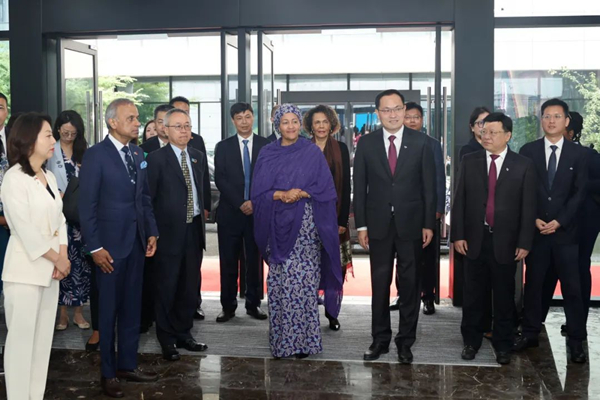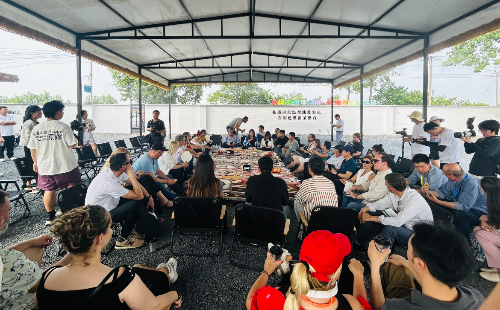UN deputy secretary-general commends geospatial technology development in Huzhou

A delegation headed by United Nations Deputy Secretary-General Amina J. Mohammed (middle) visits Huzhou, East China's Zhejiang province. [Photo/WeChat account: huzhoufabu]
A high-profile delegation headed by United Nations Deputy Secretary-General Amina J. Mohammed recently concluded a visit to Huzhou, East China's Zhejiang province.
During the visit, the delegation had the opportunity to tour the UN Global Geospatial Knowledge and Innovation Center, the first of its kind in China to operate under the UN umbrella.
Located in Huzhou's Deqing county, the center, since its inauguration on May 20 last year, has garnered tremendous support from national ministries and provincial and local governments, allowing it to establish an efficient organizational system that ensures seamless operations.
Expressing her admiration for the center's management model, Deputy Secretary-General Mohammed suggested that other countries could learn from Huzhou's approach to enhance the effectiveness of their own UN institutions and projects.
The delegation was particularly impressed by the remarkable growth trajectory of Huzhou's geospatial industry, which has evolved from humble beginnings to become a leader in the field.
Deqing, home to the UN Global Geospatial Knowledge and Innovation Center, has transformed into a thriving hub for the geospatial information industry, attracting more than 430 companies specializing in the field. In 2022 alone, the Geospatial Information Town in the county generated revenue exceeding 30 billion yuan ($4.14 billion).
Emphasizing the vital role of geospatial information technology in the realization of the UN's 2030 Agenda for Sustainable Development, Mohammed praised Huzhou for charting a new course in the application of geospatial technology.
She expressed hope that Huzhou would share its successful experiences and exemplary cases with the global community, thereby strengthening the management capabilities of developing countries in terms of geographic information. This exchange of knowledge and expertise would significantly aid in addressing global challenges related to natural resources, the ecological environment, climate change, public health, and major disasters, ultimately bolstering the progress of the UN's 2030 Agenda for Sustainable Development.





 play
play